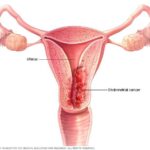18-year-old Nusaiba (surname withheld) felt heartbroken when her parents couldn’t afford to pay her school fees. Living in Kofar Ruwa community in the Nigerian state of Kano, she decided to explore business opportunities to make money and fund her schooling.
One sunny afternoon, during a conversation with her neighbour, Nusaiba learned about a rehabilitative program called Safe Space sessions offered by the Girls Improving Resilience Through Livelihoods and Health, or GIRL-H program. With the help of her neighbour, who served as a mentor on the program, Nusaiba enrolled into the initiative.
Like Nusaiba, Abbas Husaini enrolled in GIRL-H after his sister introduced the initiative to him. Prior to then, the 20-year-old resident of the Kurna Asabe community in Nigeira’s Kano State trekked the dusty streets of his community selling water from a wheelbarrow.
What does the program stand for?
The GIRL-H program was established by Isa Wali Empowerment Initiative from July 2022 to August 2023 with collaboration from Mercy Corps, to focus on marginalised communities. The program targeted 12,000 out-of-school children between the ages of 10 and 24 across 5 local government areas in Kano State.
Although Kano is perceived as the most industrialized state in northern Nigeria, youths in the state still require entrepreneurship education and small grants to start sustainable entrepreneurship ventures, according to this study.
The Girl-H project sought to fill the need for entrepreneurship and enhance general well-being by providing access to formal education and economic opportunities.
Usually, the project sources its beneficiaries through consultations with community stakeholders as well as government officials.
“Our target then was to get as many as 12,000 beneficiaries within the five local government areas. But we ended up reaching 13,826 beneficiaries from both the first circle that took place between September and November 2022 and the second circle carried out from December 2022 to February 2023. We also wanted to see that 70% of the beneficiaries were girls and 30% were boys,” Abdullahi Muhammad, the program officer for Kumbotso local government area, said.
After the meticulous selection of participants, at least 202 mentors were trained to host weekly Safe Space sessions using a curriculum designed by the initiative.
“The participants were able to develop high self-esteem and they were taught that regardless of your social or economic background, there is nothing that you cannot do as long as you have all the necessary support,” Aisha Aminu, the co-program officer, expressed.
Centred on fostering social and communication skills among the participants, sessions were spread across diverse skills ranging from bead- and shoe-making to make-up and ICT ventures.
Success stories
After co-opted into the program by her neighbour, Nusaiba took a 12-week course in bead-making. After the training, she also got funding from the program to support her in launching her bead-making business.
Since his childhood, Husaini had dreamed about designing shoes, so he joined GIRL-H program, he saw the opportunity to bring his dream to fruition and took the dive. As with Nusaiba, he received start-up capital after his 12-week training, which helped him to set up his own shoe-making venture.
About 6,055 participants received training on peer-to-peer mentorship, which involves sharing the knowledge gained with other peers outside the program.
“We have recorded a lot of success stories with the program from empowering 7,063 participants with vocational and livelihood empowerment to helping about 3,045 persons from both the participants and community members create formal bank accounts and getting registered at the National Identification Management Commission or NIMC. This was achieved through collaborations with public and private bodies at national, state, and community levels. Before the program, most of them were not aware of the benefits that come with these opportunities. We also worked to see that 75% of the whole participants get involved in community-based initiatives that aimed at both self-development and income generation,” Muhammad explained to Prime Progress.
Among these participants is Khadijah Aminu from Kumbotso Local Government Area. She learnt makeup at the program. Today, Khadijah is making money from the skill, even without her own professional tools.
“We are four who are using the same makeup kit provided by the program. I hope to get my tools that I can use separately. But I’m still happy to be part of the program because it gave me a mindset shift to learn entrepreneurship,” she said.
The 18-year-old took inspiration from her mentor, who advised that by “starting small, they will grow to become everything they aspire to be.”
Time constraint
Despite its many success stories, GIRL-H program suffered time restraints as most of its training was delayed beyond the allotted timeframe.
Yet this didn’t take a toll on the dreams of participants who remain deeply satisfied. Nusaiba aspires to expand her beads and jewelry-making business with increased financial resources while remaining steadfast in her pursuit of quality education. “My ultimate goal is to become a renowned bead maker and establish a vocational centre to empower others with the same skill set and entrepreneurial opportunities,” she said.
Husaini runs a successful shoe-making business and mentors young people in his community. He is also working towards expanding the business to pursue global partnerships that will pave the way for him to become a major producer and distributor of footwear around the world.
Room for improvement
Amina Ibrahim Idris, an entrepreneur and youth development expert, highlighted that financial literacy and business management training are essential to the success of every enterprise. While she applauded the initiative for adopting these steps, she explained that there could be room for improvement.
“The entrepreneurship ventures the participants embarked on could be sustained when they are provided with more access to resources such as production space and marketing support that involve collaborations with local business networks and organisations,” she said.
Nusaiba, an 18-year-old from Nigeria's Kano State, couldn't afford her school fees and turned to the GIRL-H program to fund her education through entrepreneurial ventures. The program, initiated by Isa Wali Empowerment Initiative and Mercy Corps, targeted 12,000 out-of-school youths aged 10-24 in marginalized communities and provided them with vocational training and financial grants.
Nusaiba and others like Abbas Husaini received training in skills such as bead-making and shoe-making and were given start-up capital to launch their businesses. The GIRL-H program achieved significant success by training over 13,000 participants and empowering many with vocational skills and financial literacy. Participants like Khadijah Aminu successfully started earning from their newly acquired skills.
Despite facing time constraints that delayed training, the program has inspired many participants to pursue their entrepreneurial dreams and created access to formal education and economic opportunities. However, experts like Amina Ibrahim Idris suggest that improvements can be made by providing more resources such as production space and marketing support to ensure the sustainability of these ventures.






